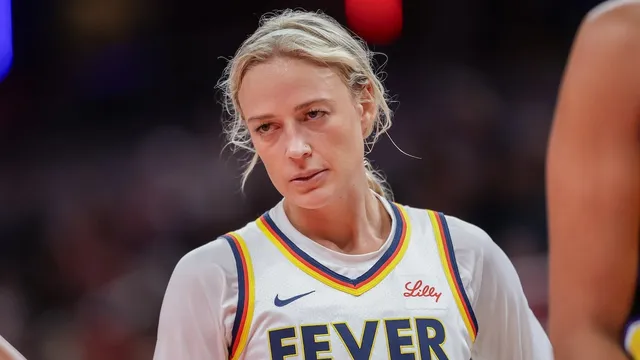
Sophie Cunningham questions WNBA's expansion plans in Detroit and Cleveland
2025-07-04 17:12- The WNBA announced plans to add three new teams in Cleveland, Detroit, and Philadelphia by 2030.
- Sophie Cunningham raised concerns about these locations due to past failures of WNBA franchises there.
- The league's expansion decisions could impact community support, player enthusiasm, and overall league growth.
Express your sentiment!
Insights
In the United States, the Women’s National Basketball Association (WNBA) announced plans for expansion, intending to add three new teams by 2030. The league aims to diversify its markets, with the latest additions set for Cleveland in 2028, Detroit in 2029, and Philadelphia in 2030. This expansion will increase the total number of franchises to 18, following the previously announced teams in Portland and Toronto, which will start their seasons in 2026. The decision to return to Cleveland and Detroit, regions where past WNBA teams have struggled, raised eyebrows among current players and fans alike. Indiana Fever guard Sophie Cunningham expressed skepticism regarding the decision to bring franchises back to these cities. Speaking to reporters after a game against the Minnesota Lynx, she highlighted that both cities had previously hosted WNBA teams that did not succeed long-term. Her main concerns centered around fan engagement and the excitement these locations could generate compared to other potential cities like Miami or Nashville. Cunningham emphasized the importance of listening to player sentiments on where they feel enthusiastic to play, stating that rapid expansion without sufficient market viability could jeopardize the league’s growth. Following Cunningham’s comments, former ESPN host Jemele Hill, a Detroit native, defended the league's choice of returning to Detroit. Hill emphasized the historical significance of the Detroit Shock’s success in the WNBA, calling their revival “incredibly meaningful” for the community and for the sport's tradition in Michigan. She argued that Detroit deserved this opportunity as the city is experiencing a resurgence and that the Shock's legacy represented a proud chapter in WNBA history. Hill pointed out that the Shock's past performances established Detroit as a city with an appreciation for women's basketball. The debate generated by Cunningham’s statements and Hill's response highlights the ongoing conversation about WNBA expansion and how these decisions impact local fan bases, player interests, and the league's future. As the league looks towards its goals of expansion, the challenges of re-establishing teams in previously unfruitful markets will require serious consideration of community support and basketball culture in those areas.
Contexts
The impact of WNBA expansion on local markets has become a significant area of discussion among sports analysts, economists, and community leaders. The Women's National Basketball Association (WNBA) has seen considerable growth since its inception, and the prospect of expansion holds the potential for substantial economic benefits to local markets. When a new team is introduced to a city, it can stimulate job creation, boost local businesses, and increase tourism. The influx of fans during game days often leads to higher sales for restaurants, hotels, and other service industries, creating a ripple effect that can enhance the overall economy of the area. Furthermore, the expansion can provide job opportunities not only for players but also for coaching staff, media relations, and support roles, contributing to the local employment landscape. Moreover, the cultural impact of a WNBA team in a community should not be overlooked. Sports teams can foster a sense of pride and unity among residents, encouraging community engagement and involvement. This sense of connection is particularly significant for underrepresented groups, as the presence of female athletes can inspire young girls to pursue sports and other leadership roles. The visibility of a professional women's team acts as a catalyst for broader conversations on gender equality, promoting the potential for societal change beyond the basketball court. WNBA expansion is not just about introducing a sports franchise; it is about building a positive identity for the community and empowering future generations. However, it's essential to carefully evaluate the potential challenges associated with WNBA expansion. Market saturation and competition with existing sports franchises are critical considerations. Cities with already established sports teams may struggle to garner enough audience interest to sustain a new WNBA team, leading to financial instability. Additionally, the commitment to community outreach and building a fan base takes time and resources. Effective marketing strategies and partnerships with local organizations are vital for success, and the league must ensure that newly established teams are equipped to build strong relationships with their fans.\n In conclusion, while the expansion of the WNBA presents exciting opportunities for growth and economic prosperity in local markets, it requires a strategic approach to maximize its potential benefits. With a focus on community engagement, visibility of women's sports, and careful financial management, the WNBA can not only thrive but also substantially uplift the communities it joins. By fostering an inclusive atmosphere and targeting broader societal issues, the league can establish lasting legacies in the cities it expands into, ultimately shaping the future of women's sports in America.